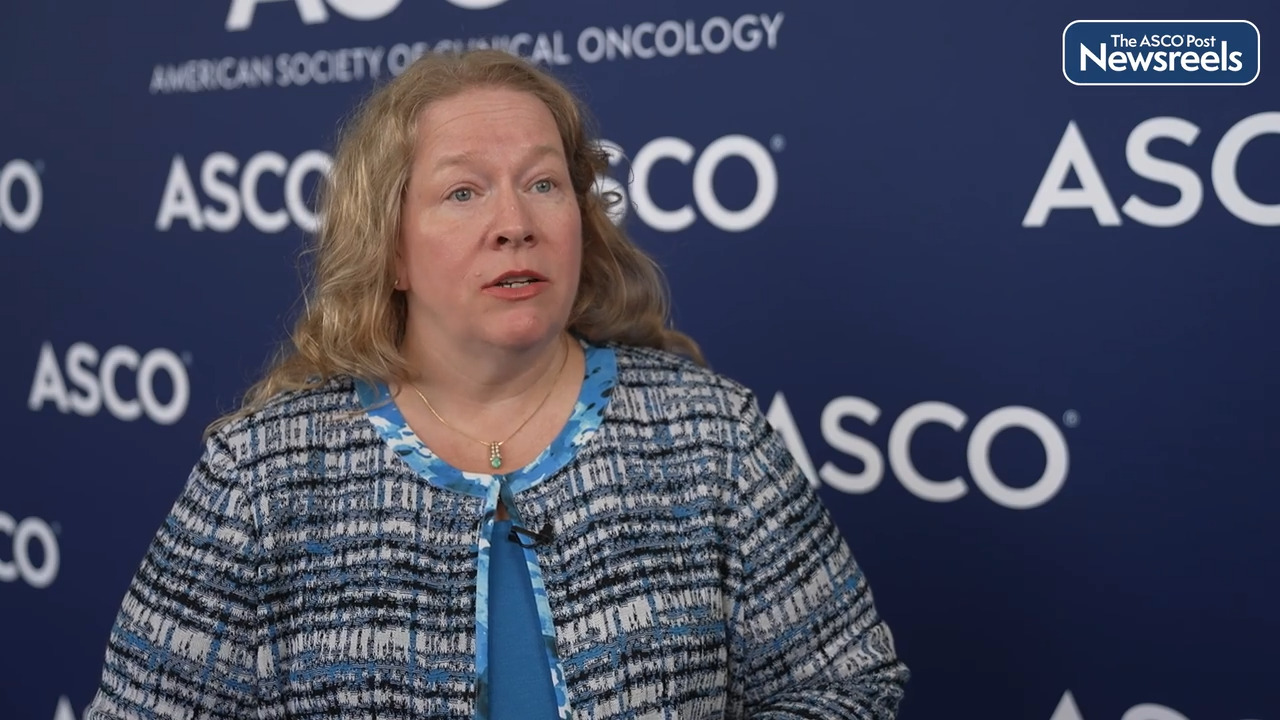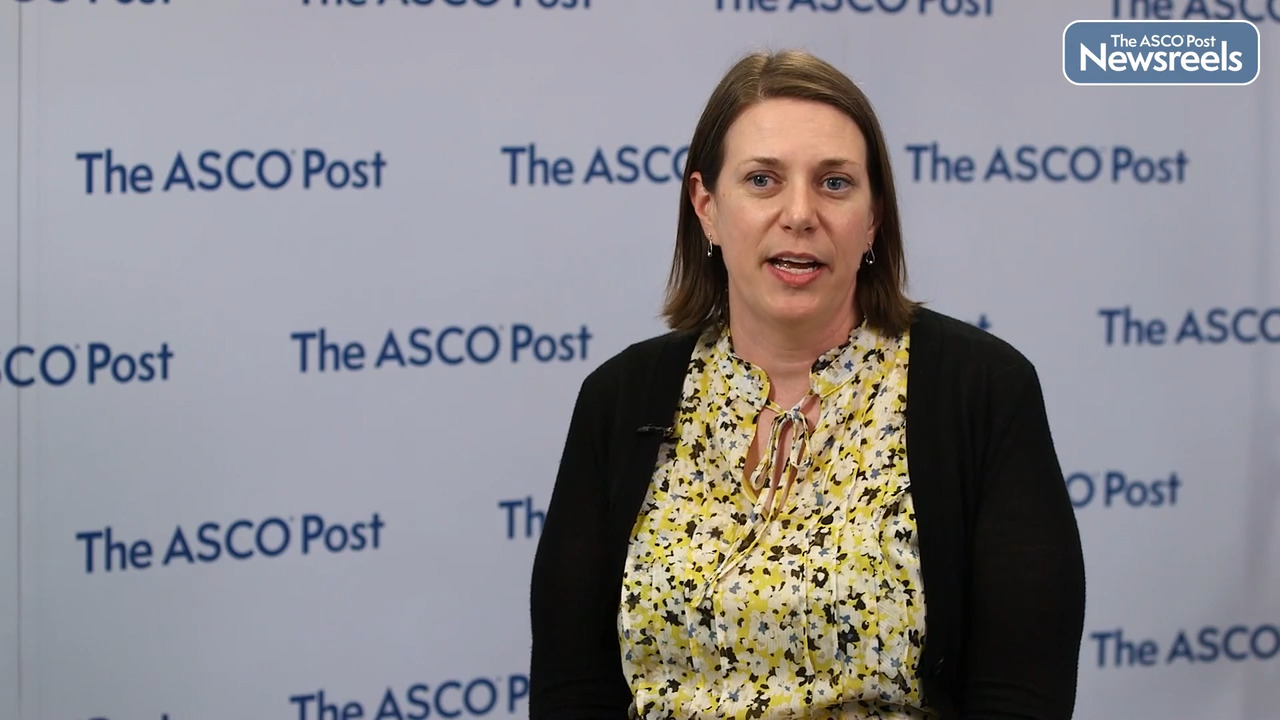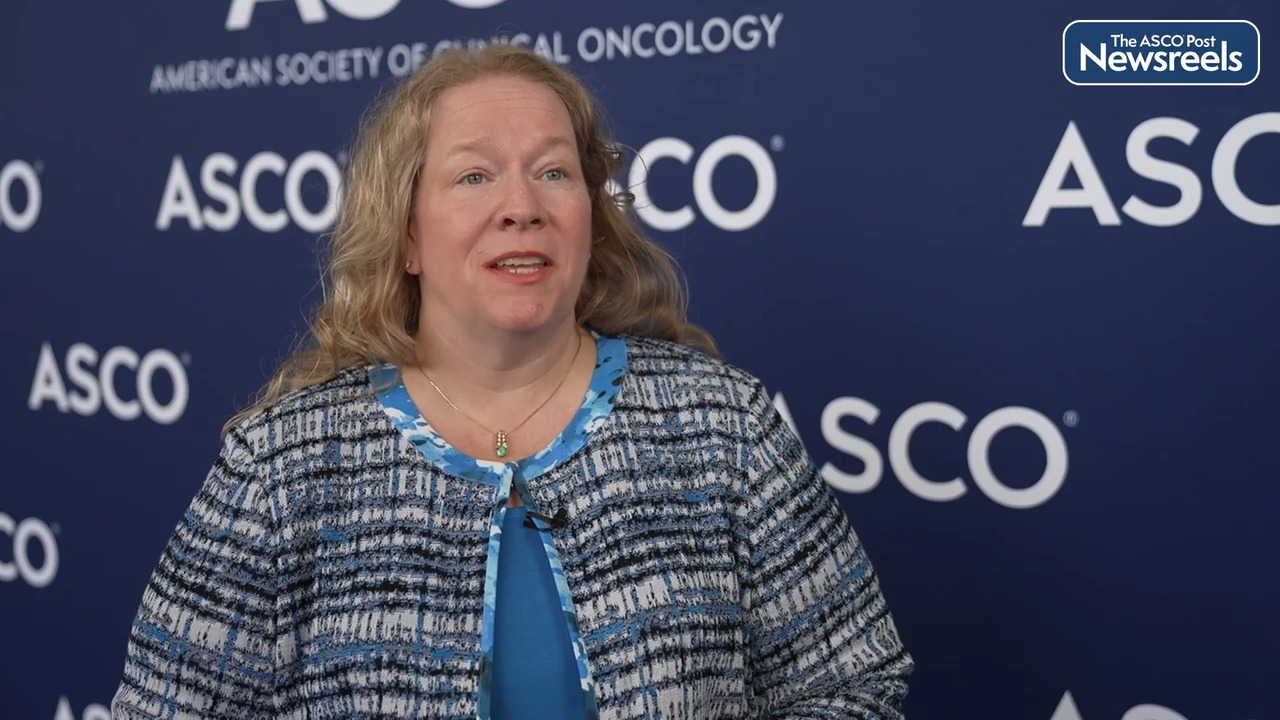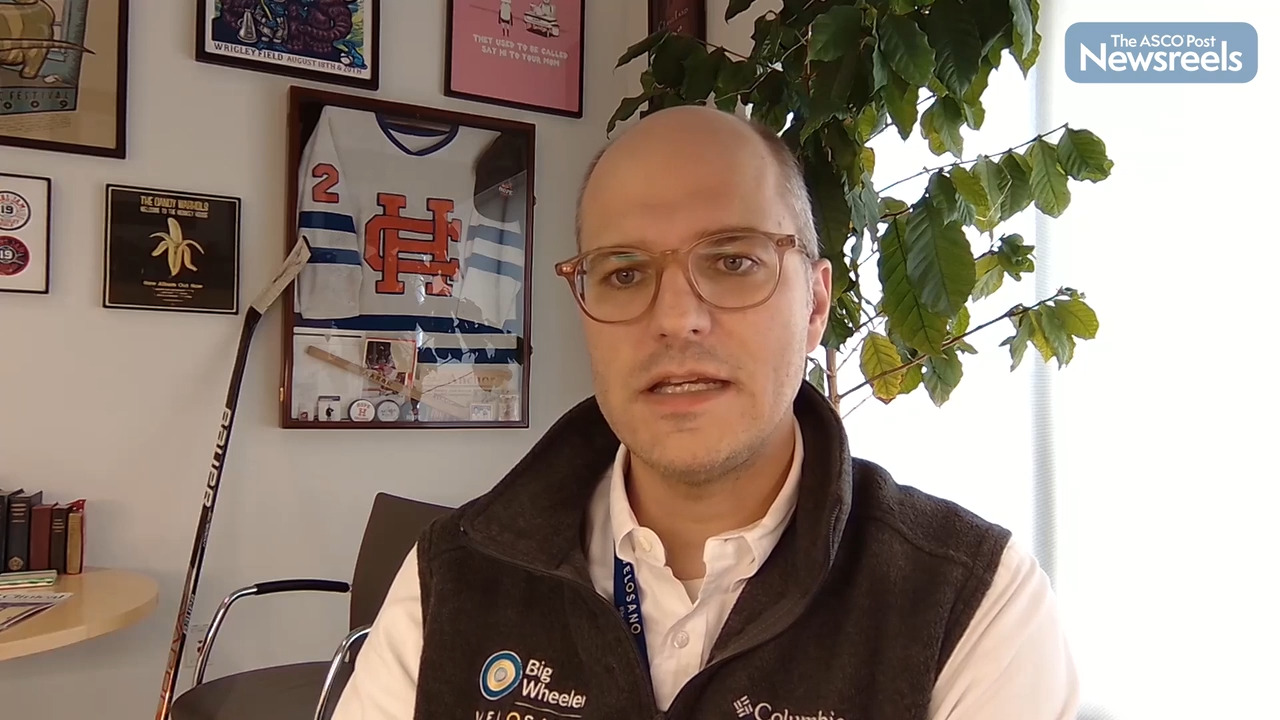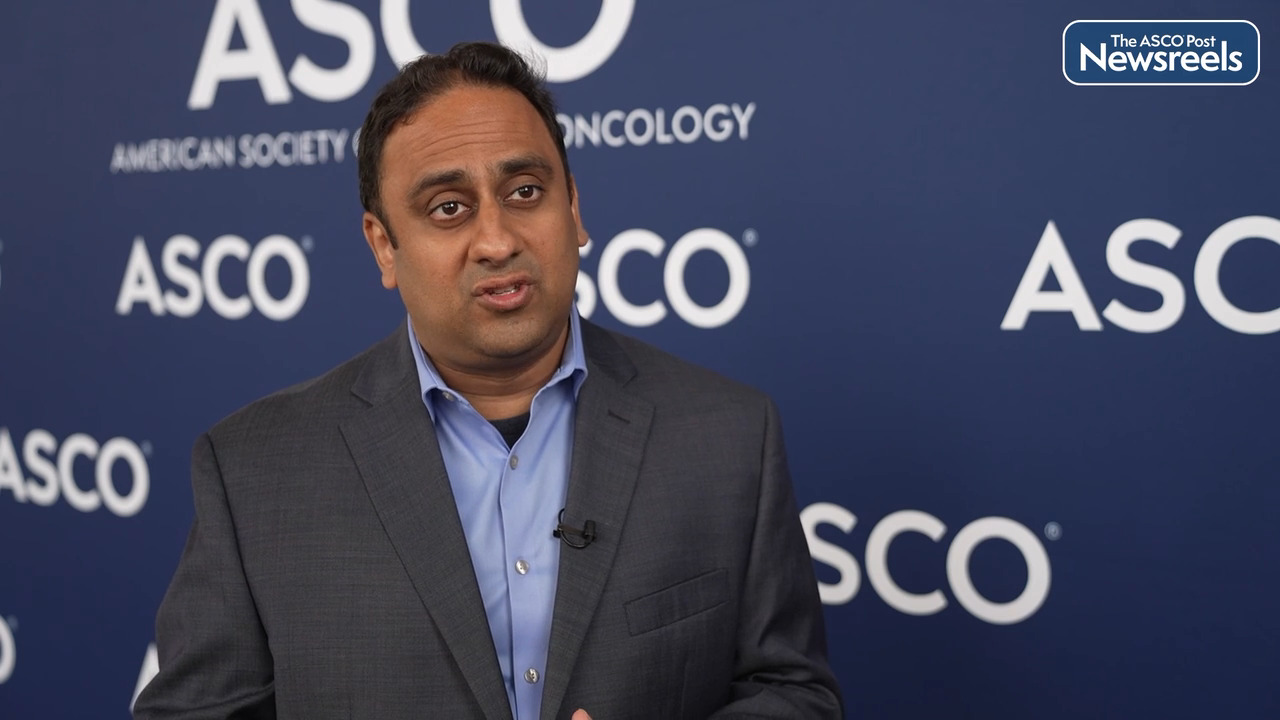Penelope Bradbury, MBChB, on Pleural Mesothelioma: New Results From the IND227 Trial of Cisplatin and Pemetrexed With or Without Pembrolizumab
2023 ASCO Annual Meeting
Penelope Bradbury, MBChB, of Canada’s Princess Margaret Cancer Centre, discusses phase III findings showing that, in patients with treatment-naive unresectable pleural mesothelioma, cisplatin and pemetrexed with pembrolizumab improved median overall survival with acceptable tolerability (Abstract LBA8505).
The ASCO Post Staff
Arlene O. Siefker-Radtke, MD, of The University of Texas MD Anderson Cancer Center, discusses the combination of erdafitinib and cetrelimab, which demonstrated clinically meaningful activity and was well tolerated in cisplatin-ineligible patients with metastatic urothelial carcinoma and fibroblast growth factor receptor alterations (Abstract 4504).
The ASCO Post Staff
Jennifer A. Woyach, MD, of The Ohio State University Comprehensive Cancer Center, discusses results of a phase III study showing that progression-free survival with ibrutinib plus obinutuzumab plus venetoclax is not superior to ibrutinib plus obinutuzumab for treatment-naive older patients with chronic lymphocytic leukemia (CLL) in the setting of the COVID-19 pandemic. Long-term follow-up will determine whether there are advantages to obinutuzumab plus venetoclax, with special attention to measurable residual disease and therapy discontinuation (Abstract 7500).
The ASCO Post Staff
Arlene O. Siefker-Radtke, MD, of The University of Texas MD Anderson Cancer Center, discusses phase III findings showing that for patients with advanced or metastatic urothelial carcinoma and FGFR alteration who already had been treated with a PD-(L)1 inhibitor, erdafitinib significantly improved overall and progression-free survival, as well as overall response rate, compared with investigator’s choice of chemotherapy (LBA4619).
The ASCO Post Staff
Aaron T. Gerds, MD, of Cleveland Clinic Taussig Cancer Institute, talks about treating the anemia many patients with myelofibrosis experience because of JAK inhibitor therapy. The ACE-536-MF-001 study showed that luspatercept improved anemia and transfusion burden in this population, with a safety profile consistent with that in previous studies (Abstract 7016).
The ASCO Post Staff
Nirav N. Shah, MD, of the Medical College of Wisconsin, discusses phase II results showing that split-dose R-CHOP offers older patients with diffuse large B-cell lymphoma (DLBCL) an equivalent dose intensity as R-CHOP-21 through a fractionated dosing schedule, improving tolerability. At the end of treatment for these older patients, a complete response rate of 71% was comparable to outcomes with R-CHOP in younger patients with the disease (Abstract 7554).
